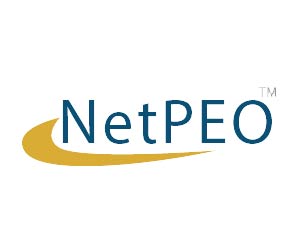When you run a growing small business, you may feel overwhelmed by new HR challenges. Fortunately, there are many different options available to help alleviate these challenges. For many business owners, they turn to HR outsourcing.
Two of the primary HR outsourcing options are professional employer organizations (PEOs) and administrative services organizations (ASOs). These types of organizations offer similar services but use a different business model. The key difference stems from the legal organization between the HR outsourcing organization and its clients. This difference can be a vital factor when determining if a PEO or ASO is right for your company.
When you have questions about whether a PEO or ASO is right for your business, NetPEO is here to help. To discuss your business needs with experts in the HR outsourcing industry, call us today (678) 376-1212.
Similarities Between PEOs and ASOs
PEOs and ASOs offer many different types of services to meet your company’s HR challenges. Services offered by PEOs and ASOs include:
- Payroll
- Risk management
- Taxes
- Employee benefits administration
- Workers’ compensation
Depending on your business needs and the business model of the organization, these may be outsourced entirely or used in conjunction with your existing HR team.
Differences Between PEOs and ASOs
How a PEO and an ASO fulfill these services is what makes them different. When you partner with a PEO, you must sign a co-employment agreement to facilitate their HR outsourcing solutions. For an ASO, there is no need to sign a co-employment agreement.
Co-Employment with a PEO
A co-employment agreement is a legal arrangement by which a PEO becomes the employer of record for a client’s employees. While your employees will remain under your management, they are considered as employees of the PEO for tax purposes. This agreement shifts around some of your liability and comes with some added bonuses for you and your employees.
Shifted Liability Under a Co-employment Agreement
Many aspects of regulatory compliance will be maintained by either type of HR outsourcing organization. PEOs and ASOs are both required to be in compliance with all state and federal laws for the HR aspects that they handle. However, as the employer of record your employees under a co-employment agreement, your PEO partner becomes responsible for handling certain aspects of legal compliance that are absent from an agreement with an ASO.
Under the co-employment agreement, your PEO will handle:
- Risk management
- Workers’ compensation
- Unemployment claims
In addition, your PEO partner is liable for ensuring that federal taxes are paid. This may also be true for state taxes, but there is no uniformity across state laws. When looking for an HR outsourcing solution, this is a question the experts at NetPEO can help determine for you.
Added Benefits of a PEO
As the employer of record for the employees of all its clients, PEOs can have access to an impressive array of benefits. This means that joining a PEO will give you the ability to offer your employees:
- Better health insurance
- Additional wellness incentive programs
- New retirement savings options
You may be able to keep your existing health insurance program with a co-employment agreement, but the improved group size under a PEO often means that there is a lower premium to be paid. Even if the option remains comparable in terms of coverage, the cost is often substantially less for your employees.
As an added bonus to these improved benefits: better employee retention. According to research by the Society for Human Resource Management, the benefits package offered by their employer plays a vital role in an employee’s decision to stay with the current employer. With the added benefits of a PEO, you have a much better chance of keeping your existing employees.
How to Decide Between a PEO and an ASO
If you’re looking for help with the administrative aspects of HR, both PEOs and ASOs offer the type of support that you need. PEOs tend to offer more comprehensive solutions, meaning that you may be better suited for a co-employment agreement if your business is lacking in established HR practices. ASOs can be more beneficial for businesses that have an existing HR department but feel the need to supplement it.
What ultimately works best for your company will depend heavily on the unique facets of your business. NetPEO, with its years of industry-leading experience connecting clients with PEO and ASO services, is ready to help you navigate the HR outsourcing industry.
If you believe that your business could benefit from easing its HR burden, contact NetPEO today at (678) 376-1212. You can also enter your preferred contact information on the sidebar to have a representative reach out to you within 48 hours.

